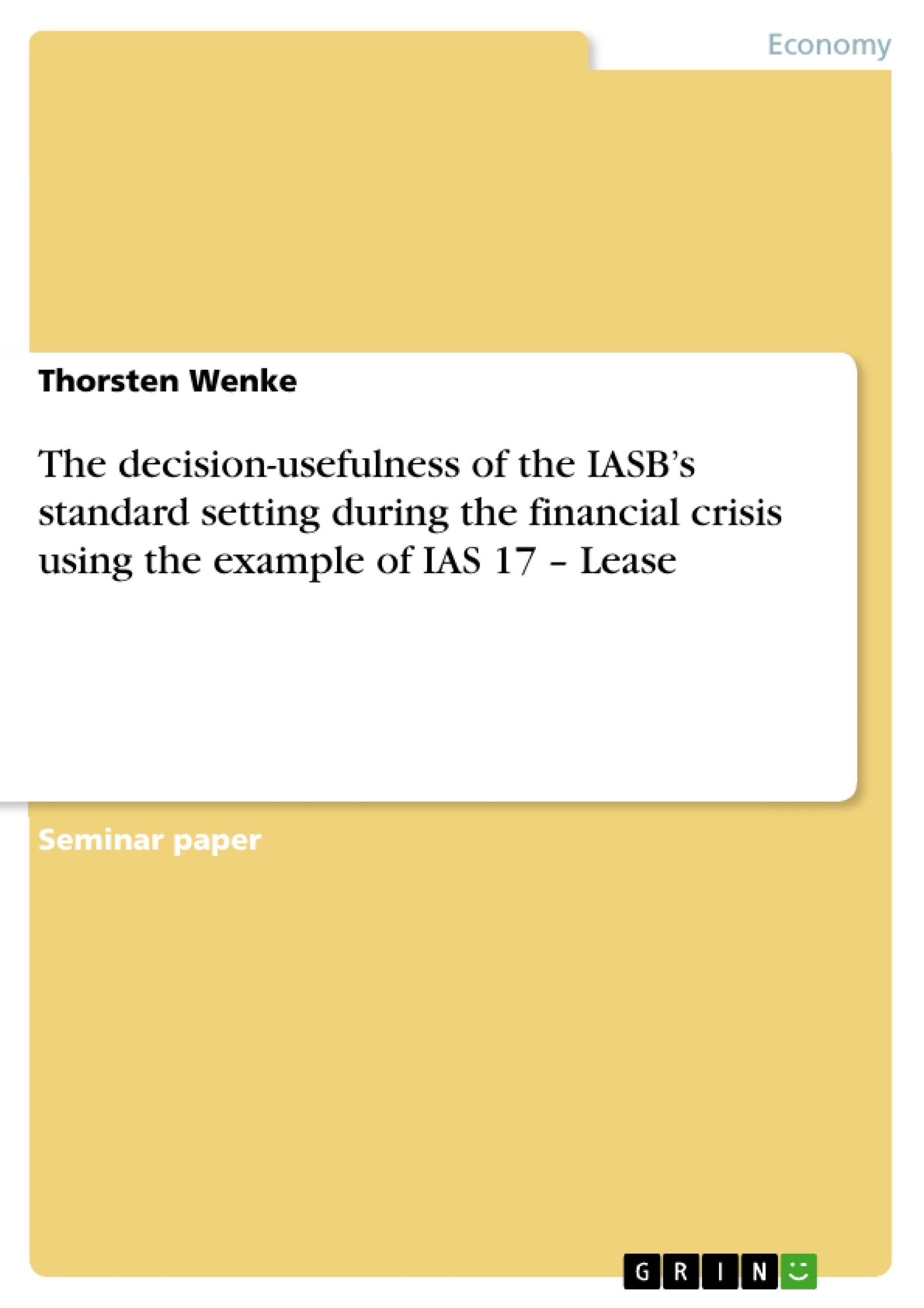“We are in the middle of the worst financial crisis in recent memory.” wrote Stephen Schwarzmann (2008). Since the middle of 2007 the media’s dominating topic has been the global financial crisis, whose roots lay in the U.S. capital market – in fact one of the best-regulated financial markets in the world. In times when capital knows no borders and all the single foreign capital markets are interconnected, it took less time until the impact of the American ‘credit crunch’ reached the rest of the world and unbalanced even the most powerful banks. In spite of market’s cross-border linkage a huge variety of different (or even contrary) accounting standards exists. Against this background the Internationals Accounting Standards Board (IASB) in cooperation with its U.S. counterpart the Financial Accounting Standards Board (FASB) tries to cope with this crisis by amending existing and setting new standards. That should guarantee showing the true economies of entities for their report’s users.
This paper will reflect the current developments of the European standard setters regarding ‘IAS 17 – Leases’. First of all the problem areas of the old standard will be shown, then the amendments will be highlighted. The focus lays on the amendments in lessee accounting and they will be evaluated by means of expert opinions whether these actions are effective and decision-useful to the public.
Inhaltsverzeichnis (Table of Contents)
- Introduction
- Problem areas of the old standard
- The amendments
- Evaluation
- The overall result
- The whole procedure of convergence
- The IASB's role in a financial crisis
- Conclusion
Zielsetzung und Themenschwerpunkte (Objectives and Key Themes)
This paper analyzes the decision-usefulness of the IASB's standard setting during the financial crisis by examining the amendments to IAS 17 - Leases. It specifically focuses on the changes in lessee accounting and their potential impact on the transparency and usefulness of financial statements for investors and other users.
- The impact of the financial crisis on accounting standards
- The role of the IASB and FASB in standard setting
- The problems with the old IAS 17 standard
- The proposed amendments to IAS 17
- The potential decision-usefulness of the amendments
Zusammenfassung der Kapitel (Chapter Summaries)
The paper begins by highlighting the challenges posed by the global financial crisis and the need for effective accounting standards. It then delves into the specific problems associated with the old IAS 17 standard regarding lease accounting, specifically the subjective interpretation of "substantially" in the risk and reward approach. This led to inconsistencies in reporting and limited transparency for users of financial statements. The paper then outlines the amendments proposed by the IASB and FASB, aiming to improve transparency by treating all leases as financial leases. The proposed changes are evaluated based on expert opinions, considering potential implications for performance and risk measures, as well as the impact on company valuation and credit ratings. The paper concludes by recognizing the broader context of convergence between IASB and FASB standards and the potential benefits for global investors. However, it also acknowledges the challenges faced by the IASB in effectively addressing the complexities of financial crises through standard setting.
Schlüsselwörter (Keywords)
The main keywords and focus topics of the paper are: International Accounting Standards Board (IASB), Financial Accounting Standards Board (FASB), IAS 17, Leases, Financial Crisis, Decision-Usefulness, Transparency, Convergence, Off-Balance Sheet Financing, Liabilities, Assets, Financial Statements, Investors, Credit Ratings, Risk Measures, Performance Ratios.
- Quote paper
- Thorsten Wenke (Author), 2008, The decision-usefulness of the IASB’s standard setting during the financial crisis using the example of IAS 17 – Lease, Munich, GRIN Verlag, https://www.grin.com/document/137222




